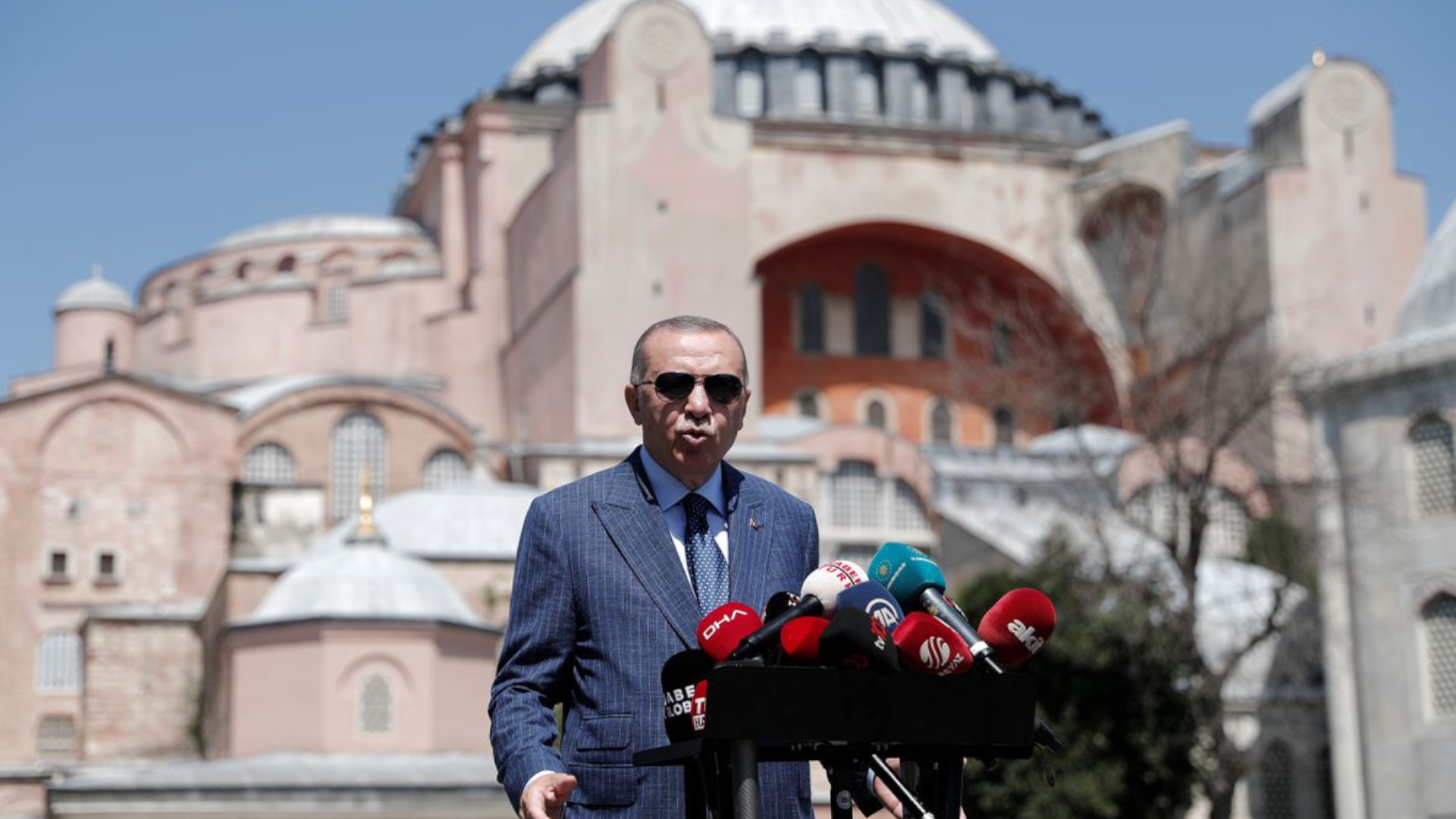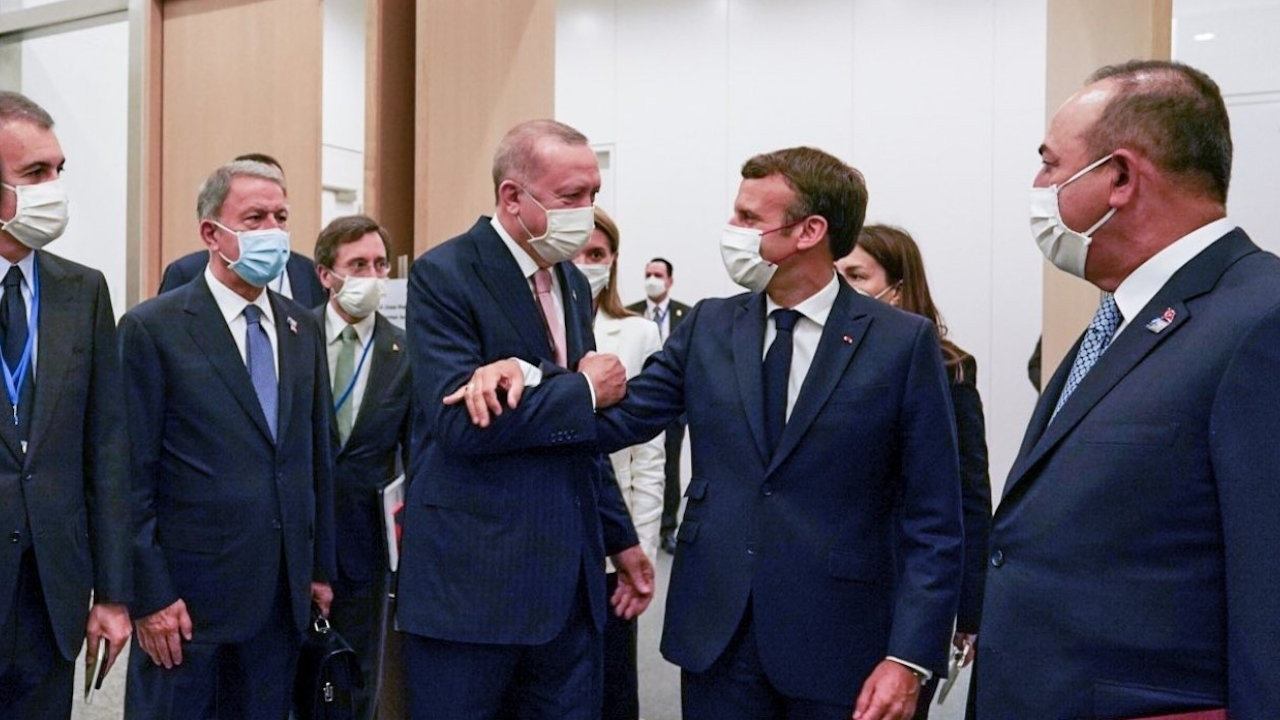Erdoğan regime can only survive via state of emergency tools
The growing sentiments such as that the AKP-MHP alliance “cannot rule the country” or that “They will be out in the first election” are obviously not inadequate. True, they cannot govern with the usual and normal instruments, but they still have extraordinary tools at their disposal that they are constantly developing and expanding. With these tools, they can maintain their oppressive regime.
In a recent statement regarding the 2017 Constitutional Amendment referendum, President Erdoğan said “That ship has sailed.” This moment was symbolic in defining the regime change. The popular vote in 2017 was carried out under “state of emergency” (OHAL) conditions. Turkey’s regime changed at a time when the security of individuals and the ability of institutions to act autonomously did not exist. More precisely, 2 million unsealed votes were accepted unlawfully by the High Election Board (YSK).
The ‘democracy vigils’ did not reach widespread popularity. They were meant to be routine watches, guarding the regime against such evils as the July 15, 2016 coup attempt. This failed coup was meant to be used as the founding myth of the regime; however, this strategy did not work based on what we saw on Thursday, the fifth anniversary of the incident. However, the regime just cannot stop clinging on to the OHAL regime established on July 20, 2016.
The regime not only continuously uses the OHAL instruments, but it diversifies and expands these tools. The “statutory decrees” issued during the state of emergency had the same power as laws. Today, when there is no state of emergency, circulars have taken the place of the statutory decrees (KHK) and it is still possible to restrict fundamental rights and freedoms.
Extraordinary measures have been introduced without needing a state of emergency. Control mechanisms have stopped functioning. These KHKs, which were used as tools of the state of emergency, were used to transition to a normal period; they essentially designed the new ‘normal’ and are still in force.
The State of Emergency Procedures Review Commission was formed for a two-year term. Each year, its jurisdiction is extended for another year. Thus, tens of thousands of citizens’ access to justice is prolonged, during this ‘normal’ period without a state of emergency. This is because the regime needs this method of maintain power more than anything else.
In the recent bag law proposed to Parliament, there are three articles that basically extend the state of emergency for another three years via the most effective instruments necessary to maintain the functioning of the regime. With Article 12 of the bill, the controversial Article 19 of the Anti-Terrorism Act, which was introduced for a period of three years, is extended for three more years. This regulation goes against the freedom and security of individuals. With Article 19 of the proposal, an extraordinary arrangement is extended for another three years; one which involves the extension of the provision for the appointment of the Saving Deposit Insurance Fund (TMSF) as a trustee. Despite the Constitutional Court’s decision on Law 7086, the expulsion of public officials as a measure during the state of emergency is still found in
Article 22 of the proposal.
The growing sentiments such as that the AKP and its partner Nationalistic Movement Party (MHP) alliance “cannot rule the country” or that “They will be out in the first election” are obviously not inadequate. It is necessary to ask why the AKP-MHP alliance is clinging to “state of emergency” measures. The simple answer is that they need them to stay in power. They need these extraordinary measures to suppress their political opponents and to block those channels where the people would demand democracy, such as the right to protest and the right to assembly.
There is a need for this structure so that attacks against the opposition Peoples’ Democratic Party (HDP), Republican People’s Party (CHP), İYİ (Good) Party are possible. The regime needs extraordinary measures so that it can suppress mine workers in Soma, peasants in İkizdere, and all other social movements. As far as other superficial consequences of this structure, we see pro-government columnist Hilal Kaplan being appointed to the state broadcaster, TRT, Board of Directors, Professor Melih Bulu appointed to prestigious Boğaziçi University as the rector (he has been removed from his post), and other questionable appointments such as Erkan Ibiş to the Ethics Committee of Public Officials and İrfan Fidan to the Constitutional Court.
The only way Interior Minister Süleyman Soylu is able to do what he does is via the order of July 20, 2016. Soylu is said to have contributed to the relevant clauses in the bag law. If you go below the surface, you will notice whose interests the army commander is protecting when he confronts the workers. When the villagers are beaten when they try to protect their land and their water sources, the same interests are visible. They benefit the gangs dealing with state tenders, those looting and profiteering official resources, the mafia, and those ties between the state and capital owners.
The conclusion I have reached is that the establishment of this regime is not dated after July 15, 2016, but rather, it began with political decisions made mid-2015. This alliance was formed via the spiral of violence that followed the June 7, 2015 general elections, and was repeated in November of the same year. Other political decisions from the time include special security zones and unlawful circulars to remove public servants from their posts, signed by the then Prime Minister Ahmet Davutoğlu. The opposing side of the Gülenist gang’s attempt to take over the state has not been a democratic front. It has been built as another front to take over the state. Thus, July 15 could not become a founding incident in the eyes of the public as the regime tried to promote it. This is so because the regime is constantly returning to 2015, restructuring itself according to June 7, 2015.
Those that claim this government is unable to govern the country and the assumption that “they will disappear in the upcoming elections” leads us to wrong conclusions. True, they cannot govern with the usual and normal instruments, but they still have extraordinary tools at their disposal that they are constantly developing and expanding. With these tools, they can maintain their oppressive regime. True, looking at the meltdown in their votes, they would lose power in the first election; but they are not hiding that they are using tools which allow the “ship to have sailed long ago.”
The sentiment that they are “about to lose” and “unable to govern” do not make political sense. It is not possible to talk about politics without fighting for rule of law and democracy and against the extraordinary tools in the hands of the regime. Without the removal of these structures, normal rule of law cannot be built. Not ‘democratic,’ but in order to re-establish the field of demands of politics, that is where the demands of the social classes are met through public resources; it is necessary to take away these extraordinary tools acquired, maintained, developed, and expanded by the regime.


 Regime change and foreign policyWorld
Regime change and foreign policyWorld Erdoğan shields his regime from the West by harmonizing his behavior with itWorld
Erdoğan shields his regime from the West by harmonizing his behavior with itWorld